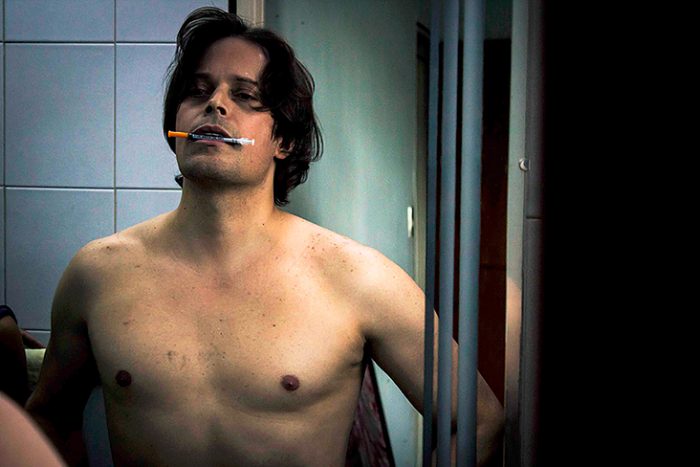By Gita Subaran
Toronto International Film Festival review
Director: Elia K. Schneider
Tamara tells the story of Teo Almanza who, upon hearing about the death of his brother, returns to his hometown in Venezuela. What was initially intended to be a short visit culminates into a long trip to gender reassignment. The film explores Teo’s desire to become a woman and shows the protagonist’s search for his true self, his struggle with societal taboos as well as inner conflicts regarding who he wants to become in contrast with what society wants him to be. In a federal republic that is predominantly Catholic, it is not difficult to imagine the hardships transgender men and women face on a daily basis. Yet the film intentionally sways away from the violence perpetually inflicted on the transgender community and, rather, chooses to focus on the complexity of identity. As Teo puts it: “People are not defined by what they have between their legs”, and rightfully so.
As a lawyer, spouse and father, Teo does not seem to be found wanting in the eyes of his surroundings. Yet while he fits those patriarchal roles quite seamlessly, his entrapment in a body that he denies as his own continually leaves him in a state of emotional distress. Throughout the film, this turmoil our protagonist has to contend with, in terms of defining who he is, is beautifully executed in the form of therapy sessions juxtaposed with flashbacks and voice-over narration. We find ourselves in the back of his mind and, as such, are better able to relate to his circumstance. Tamara also heightens this quest for the self by displacing the protagonist from his point of origin, or, rather, his comfort zone: Paris and its bohemian lifestyle, where Teo studied law. This displacement allows for a socio-political context and as such the film successfully offers a modern, transgressive and twisted look at transsexuality in a particular location that is heavily influenced by tradition.

While this film might not appeal to everyone, we can appreciate the fact that Teo sets out to be who he has always wanted to be, regardless of the natural fear of finding himself utterly alone or made fun of for the rest of his life. The film also makes a valid point in asserting that self-realization can occur at any age, and that it is possible to be reborn – a philosophical approach that contrasts heavily with Catholicism. What we also find in most films dealing with transgender characters is a feeling of empathy due to pity, but here we tend to morally support the main character all the way through his transformation because we admire his ability to thrive, regardless of society’s constraints and animosity towards change. The powerful dramatization in performance delivered by Luis Fernandez and his expressive nature are both essential in underlying Teo’s ethos. As such it is a successful attempt in blurring and delineating the borders between male and female.
Ultimately, Elia K. Schneider’s film is a reaction to the norms and the codes of conduct prescribed by a society that refuses any change attributed to the human condition. As such, it manages to provoke the mind, and bring about a couple of laughs from time to time. While the pace of the film can be slow at times, it serves as a breather and allows its viewers to both pause and reflect in the company of the protagonist. One thing is certain: it is not a film for the faint of heart.
To bring Tamara to your region, cast your DooVote here!
Recommended Viewing on FilmDoo:
(UK & Ireland only)








